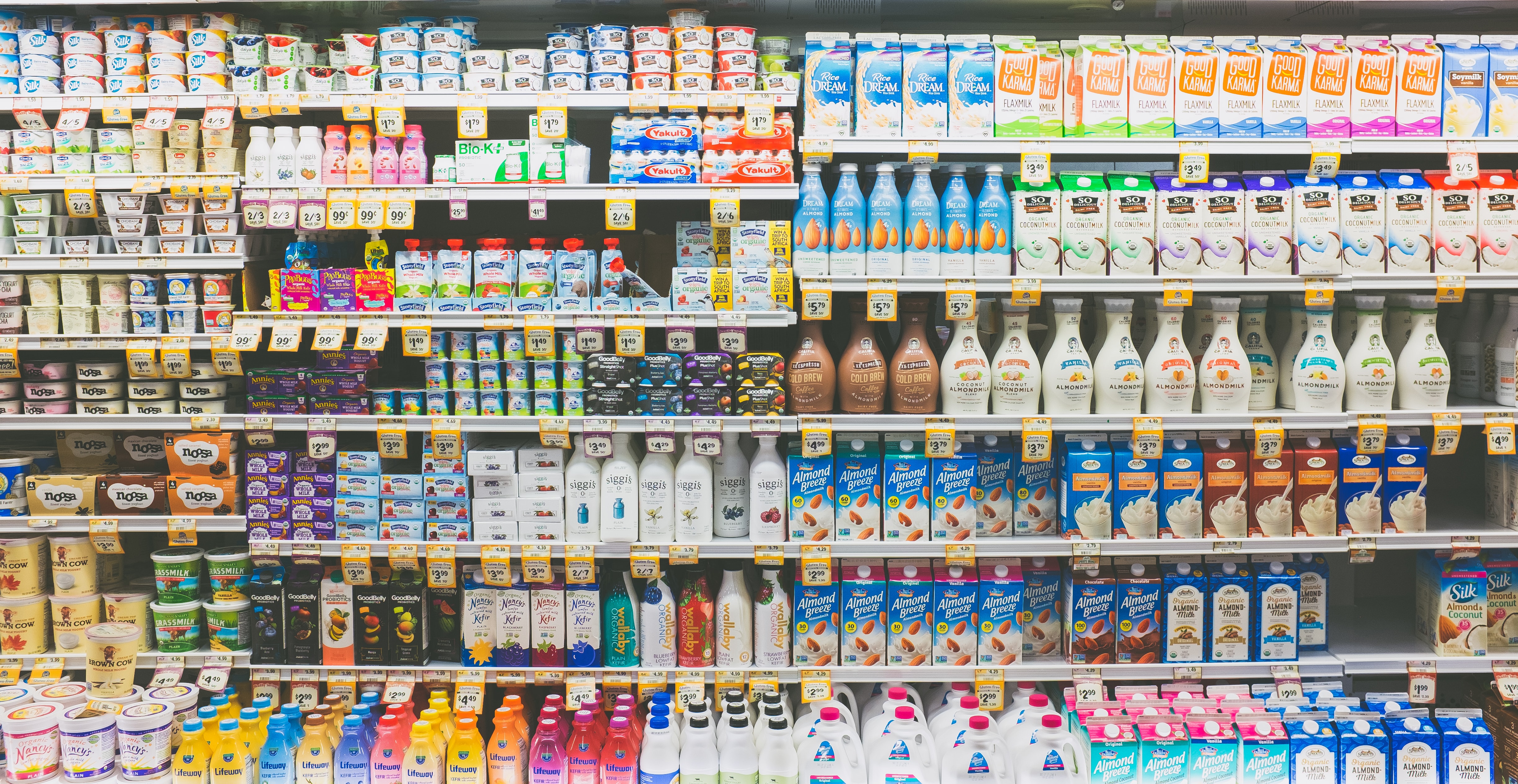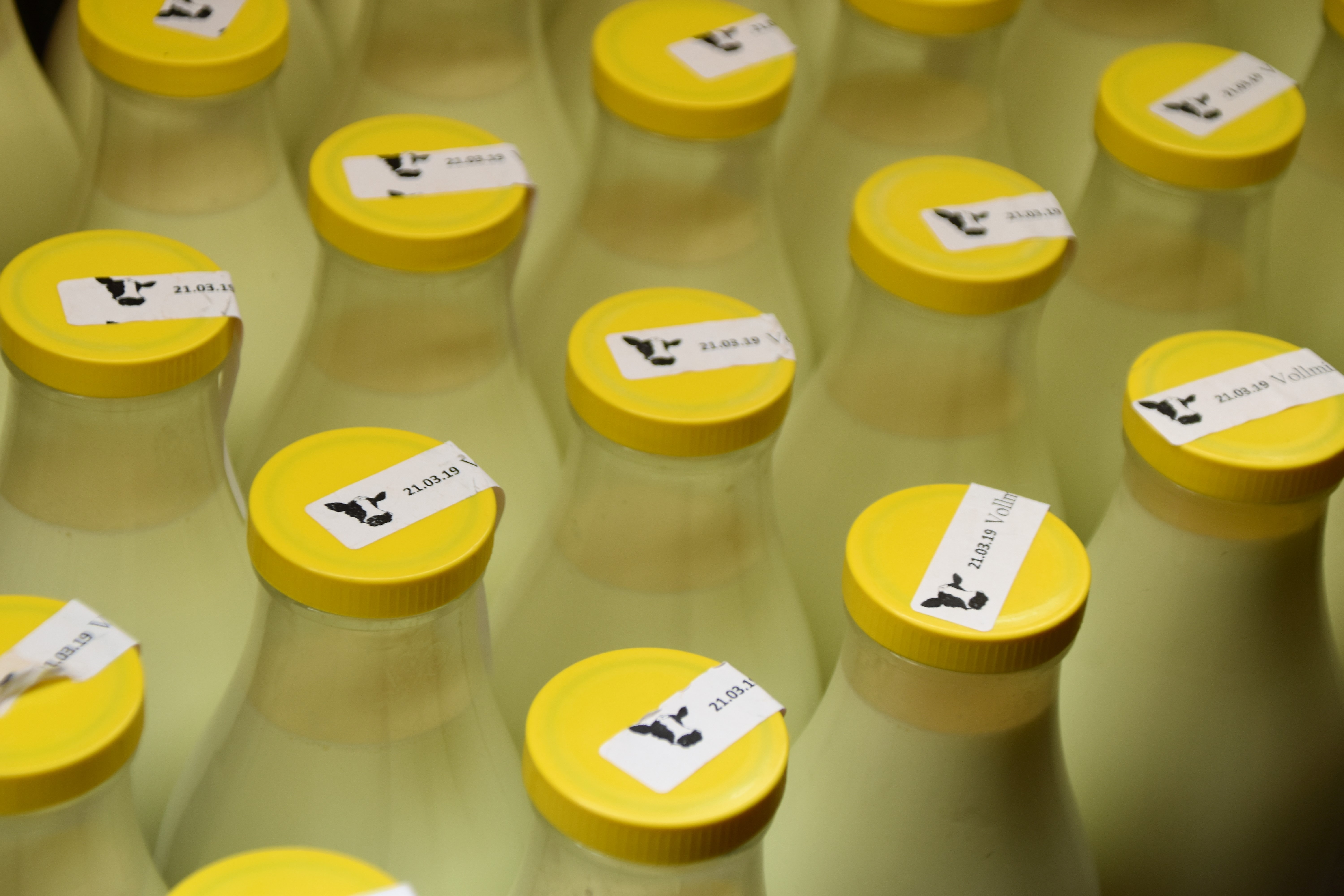How a Dairy Distributor Can Get Your Local Milk Product In Stores
Local milk products are becoming increasingly popular with today’s consumers — 53% believe it is more important to shop with local businesses now than it was before the pandemic.
More and more people are aware of how the products in their shopping baskets can better serve their local community… but how can you reach them?
Let’s take a look at how local producers can get their milk products into stores and in front of local customers. It starts with doing your research and ends with finding the right dairy distributor.

How to get your local milk product in stores
Check for permits
Before you can sell your product to suppliers, you’ll need to make sure that you have all of the permits required to legally run a food business.
As a milk product producer, that means applying for a dairy license.
Once you’ve completed the application, an inspector will visit you to examine your facilities. And if everything meets the expected standard, you will be given a diary license — meaning you can legally sell your products to consumers!
On the other hand, if your dairy license isn’t approved, you won’t be able to get your local milk product into stores. So this is a really important first step.
Check labeling requirements
As well as your dairy license, you’ll also need to check the labeling requirements for milk products.
For example, if you’d like to label your product as ‘organic’, your product will need to meet National Organic Program regulations.
These regulations define organic agriculture as “the application of a set of cultural, biological, and mechanical practices that support the cycling of on-farm resources, promote ecological balance, and conserve biodiversity. These include maintaining or enhancing soil and water quality; conserving wetlands, woodlands, and wildlife; and avoiding use of synthetic fertilizers, sewage sludge, irradiation, and genetic engineering.”
So, if you’d like to label your milk as ‘organic, then your procedures and facilities will need to meet these requirements before you can sell your product to local suppliers!
Create great packaging
The packaging of your milk product is super important to getting it on the shop shelves.
Most importantly, your packaging needs to comply with the labeling requirements discussed above. Without the correct labels, stores simply won’t be legally allowed to sell your product.
But in addition, it’s also important that your packaging stands out from the crowd.
You want your product to be eye-catching and memorable to suppliers — so that they actually want to stock it on their shelves.
So, putting some time and effort into creating attractive and functional packaging for your milk product is definitely worth it.
Consider adding bright colors to your milk bottle label, using a unique font to represent your brand, or even adding some illustrations to the packaging design.
All of these will make certain that your milk product not only gets a place on the best shop shelves but will also encourage customers to purchase your product!

Do your pricing research
Once you’ve got your packaging and labeling sorted, it’s time to do some pricing research!
You’ll want to price your milk product competitively to encourage consumers to choose your milk over similar products on the shop shelf.
It’s important that you don’t price your milk product too cheaply, as this will give customers the impression of a lower quality product.
But equally, pricing too high will mean that they’ll choose a more affordable alternative.
It’s a good idea to find out what the going rate is for the type of milk you’re selling. Remember that organic and grass-fed milk are much more likely to sell for a higher cost, so if you’re selling this type of milk, make sure that your pricing reflects this!
Completing thorough pricing research before you sell your milk product to local stores is a really important step.
It will give you a much better idea of a reasonable amount to charge so that you don’t charge too much or too little for your milk product.
Decide who your dream vendors are
The next step is deciding who your dream vendors are. These are the stores that would be the perfect fit for your brand’s values — and the ones you’d love to see your product stocked in!
For example, if your milk is organic, then local whole foods or organic stores are likely to be a perfect place to stock your product.
Do plenty of research on local vendors and make a lot of your top choices. And then you’ll be ready to…
Contact the vendors
Reach out to those dream vendors and explain what your product is, why it’s so great, and offer them a sample.
Don’t be afraid to put yourself out there to the stores you’ve always dreamed of stocking your milk product in.
As long as your product adheres to all food product and labeling laws, and is an original and unique product, then there’s a good chance they’ll be interested in stocking it!
Use a dairy distributor like Buffalo Market
Buffalo Market is the leading distributor of mission-driven food and beverage brands.
A dairy distributor like Buffalo Market can help you get your milk product into stores, so you can reach even more local consumers.
Whoever your dream vendors are, get in touch with us today to find out more about how we can help to distribute your local milk product.


